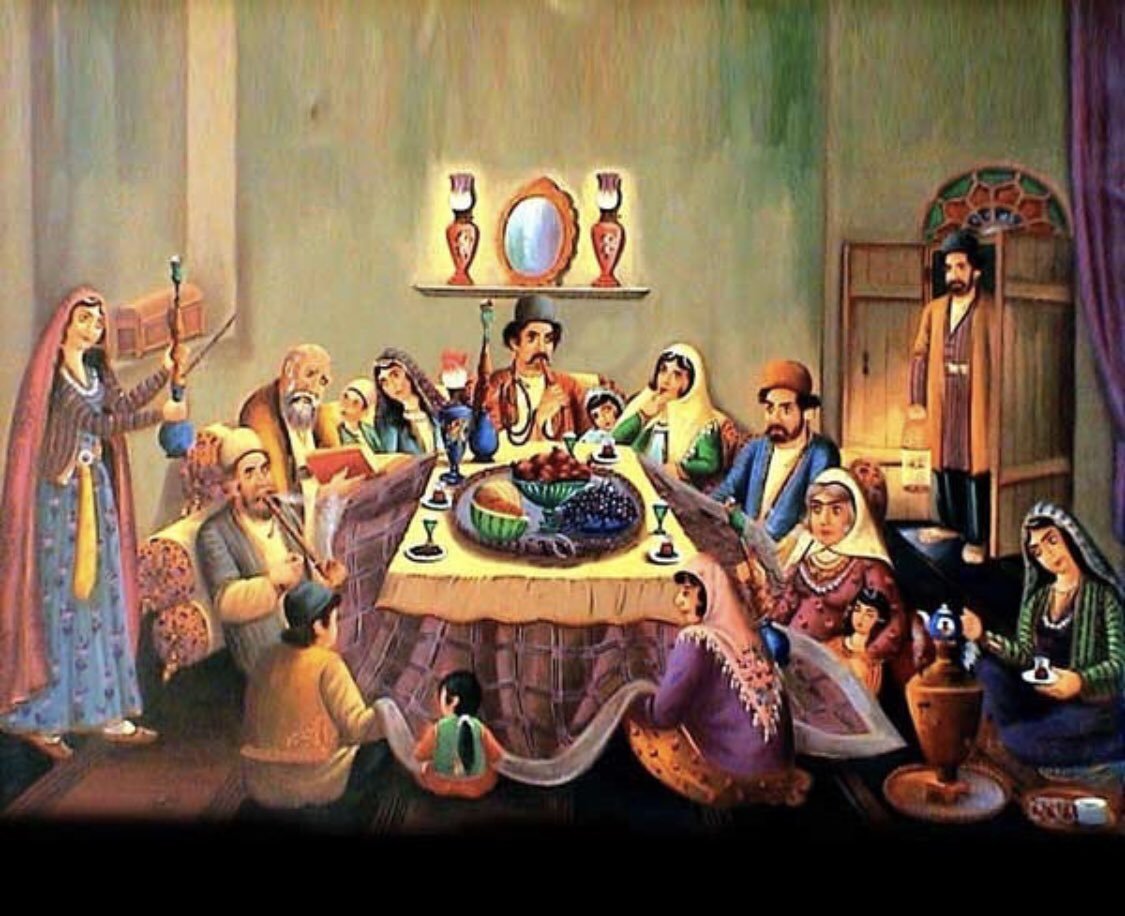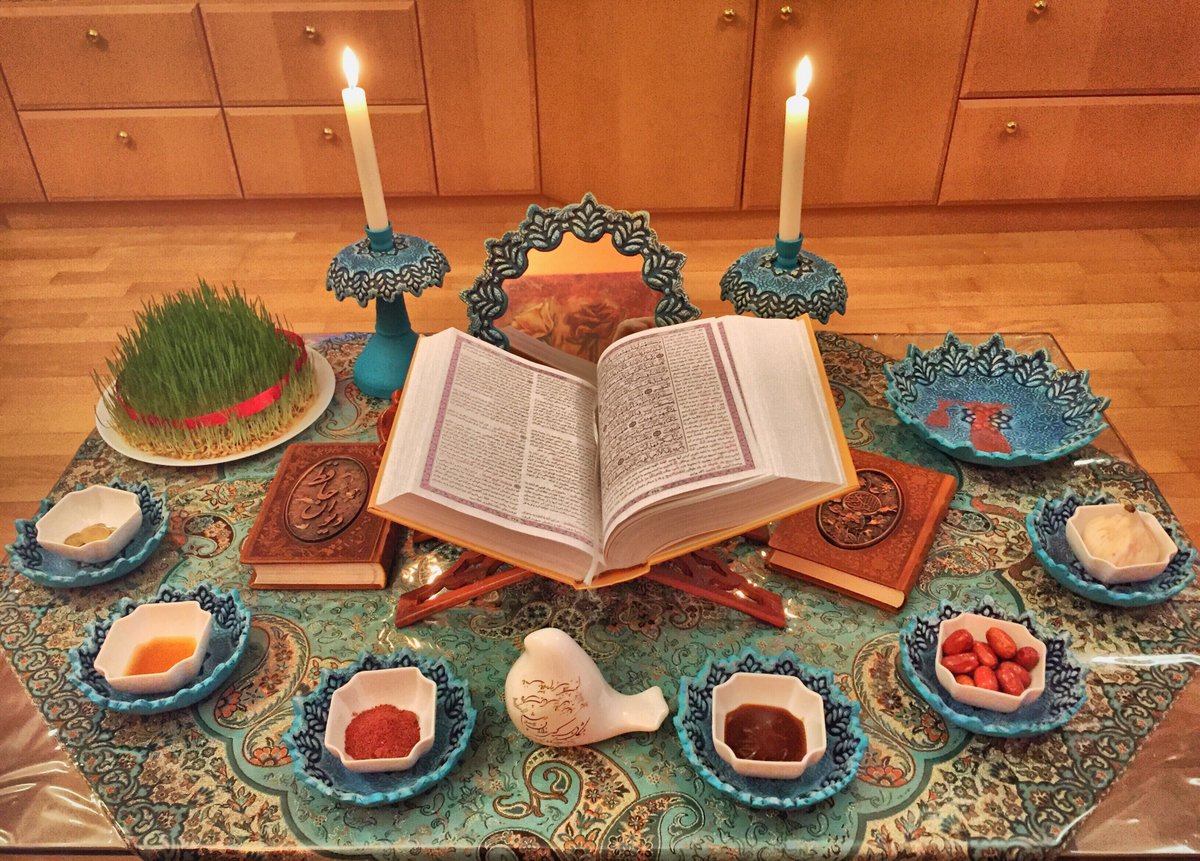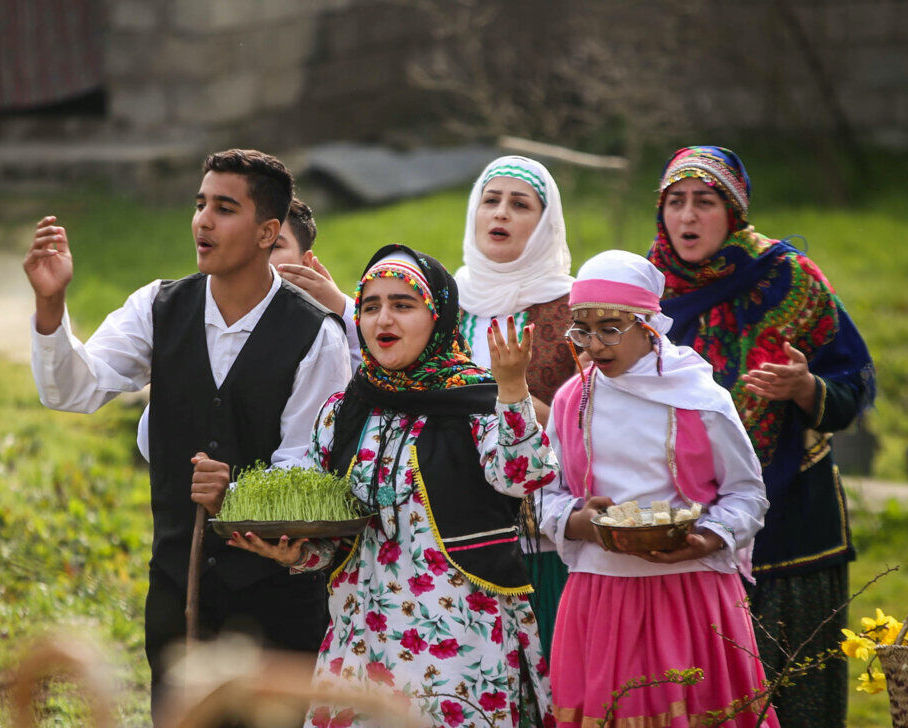Did Rumi really write, “Not Christian or Jew or Muslim, not Hindu Buddhist, Sufi, or Zen. Not any religion or cultural system.”? A thread on the whitewashing and secularizing of Sufi poetry. (1/17) 
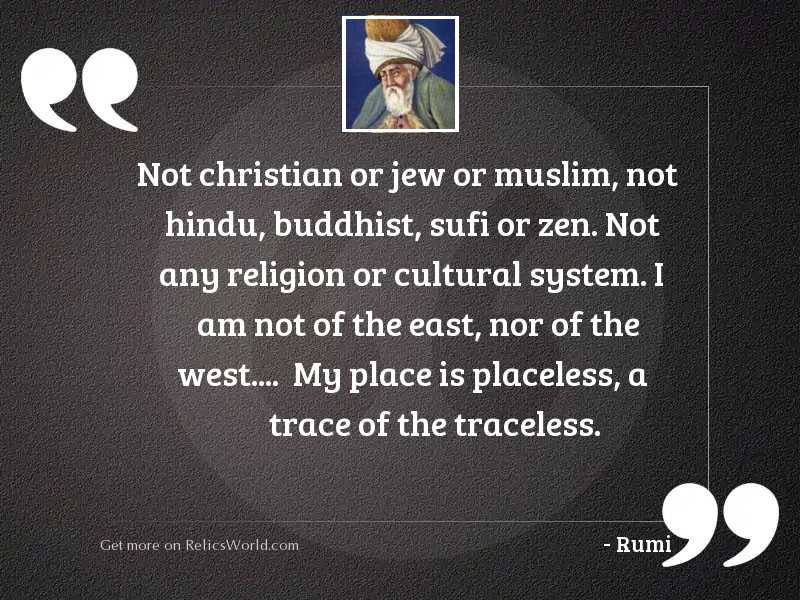
One of the most common quotes used to claim that Rumi wasn’t a Muslim comes from page 32 of Coleman Bark’s ‘The Essential Rumi’: (2/17) 
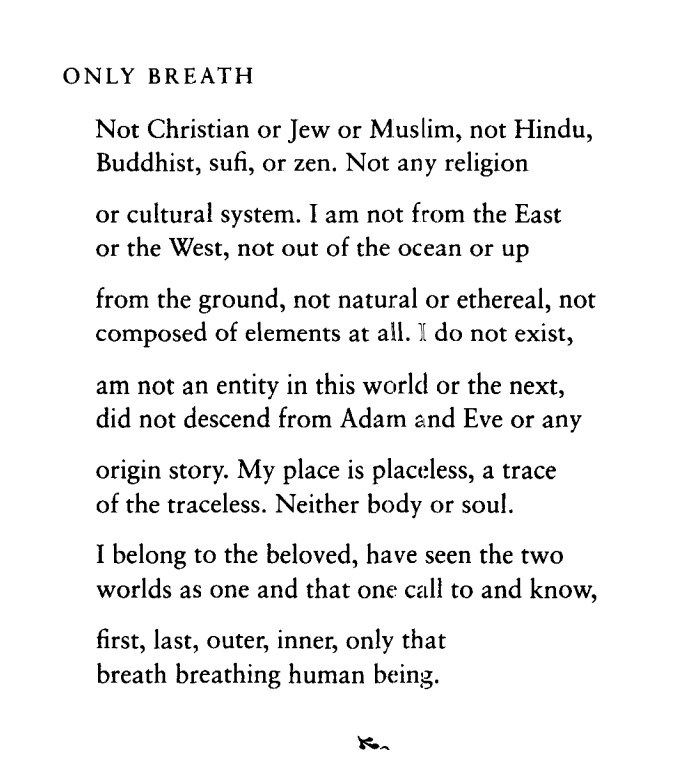
Where is this quote from? Barks - who never studied Persian - seems to have re-worded it from Reynold Nicholson’s translation: “What is to be done, O Moslems? for I do not recognize myself. I am neither Christian, nor Jew, nor Gabr (Zoroastrian), nor Moslem.” (3/17) 

Notice what Barks omitted? He removed the first line where Rumi addresses the readers as ‘O Muslims.’ Another one of many deliberate erasures of Islam by Barks. But what’s even worse is that this poem isn’t even by Rumi! (4/17)
Here’s the original text of the poem:
چه تدبیر ای مسلمانان که من خود را نمیدانم
نه ترسا و یهودیم نه گبرم نه مسلمانم
It’s not found in Rumi’s collected works, and Nicholson himself admitted it wasn’t by Rumi. Other Rumi scholars like Ibrahim Gamard agree. (5/17)
چه تدبیر ای مسلمانان که من خود را نمیدانم
نه ترسا و یهودیم نه گبرم نه مسلمانم
It’s not found in Rumi’s collected works, and Nicholson himself admitted it wasn’t by Rumi. Other Rumi scholars like Ibrahim Gamard agree. (5/17)

This isn't surprising though, as incorrect attribution of medieval Persian poems is very common. Poets would often write a poem in the style of their favorite poet. The poem would eventually get mixed in with the original work as manuscripts were re-copied by hand. (6/17)
This content of the poem isn’t problematic either. These types of statements are very common in Sufi poetry. Take this famous Amir Khusrow line:
کافر عشقم مسلمانی مرا در کار نیست
“I’m a kafer (infidel) of love, there’s no Islam in me” (7/17)
کافر عشقم مسلمانی مرا در کار نیست
“I’m a kafer (infidel) of love, there’s no Islam in me” (7/17)
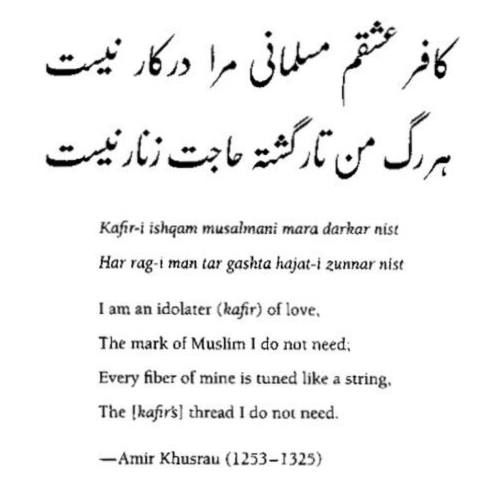
Interestingly, this poem is also incorrectly attributed to Khusrow. Like our Rumi poem from earlier, it’s also ostensibly announcing his apostasy from Islam, but readers know that it’s just a metaphor. Sufi poetry is full of this exaggeration (mubalagha). (8/17) 

Readers familiar with Sufi poetry understand these tropes, but Barks et al have torn these deeply metaphorical poems from their context and presented them with no explanation, in what amounts to nothing less than an offensive misrepresentation. (9/17)
That’s perhaps the biggest tragedy of this phenomenon: The most profound, meaningful poems of the Islamic tradition are torn from us, rendered as mere literalisms, presented with no context, and then used to discredit our own civilization. (10/17)
I can’t count how many Islamophobes have told me that Islam is uniquely intolerant, hateful, or lacking in spirituality, and when I bring up Rumi, they rebut that his enlightenment made him leave Islam, citing these decontextualized poems as evidence. (11/17)
It’s hurtful when Muslims are characterized as uniquely intolerant and meanwhile our intellectual tradition - which disproves these stereotypes - is taken from us as well. Worst of all, this cultural theft is celebrated by the offending culture and even some Muslims. (12/17)
That’s why I don’t accept apologetics for Barks et al, I don’t care if he’s popularized Rumi in the West. What he’s done is a disservice to our tradition. He’s given credence to Islamophobic notions of us being inherently violent and bereft of any deep thought. (13/17)
There’s colonial arrogance at play here. I couldn't imagine doing such a thing to the sacred literature of another culture. I would never try to 'translate' poetry I couldn't even make sense of, let alone change it as I see fit and profit as well! (14/17)
Sadly, some Westerners will not think twice before doing such a thing to Muslims. And we, having lost our connection to Persian via colonization (Macaulayism), are left to understand ourselves from our colonizer’s point of view. (15/17)
If this upsets you, you can redirect your anger to something positive: We are working on correcting the record on Rumi and other Persian poets, but we can’t do it alone. This work takes many hours of research, and we are only funded by our readers. (16/17)
Please consider joining our Patreon, even $1 helps:
patreon.com/persianpoetics.
You can also make a one-time donation via ko-fi:
ko-fi.com/persianpoetics
or Venmo @persianpoetics
For the fashion inclined:
teespring.com/stores/persian… (17/17)
patreon.com/persianpoetics.
You can also make a one-time donation via ko-fi:
ko-fi.com/persianpoetics
or Venmo @persianpoetics
For the fashion inclined:
teespring.com/stores/persian… (17/17)
• • •
Missing some Tweet in this thread? You can try to
force a refresh



